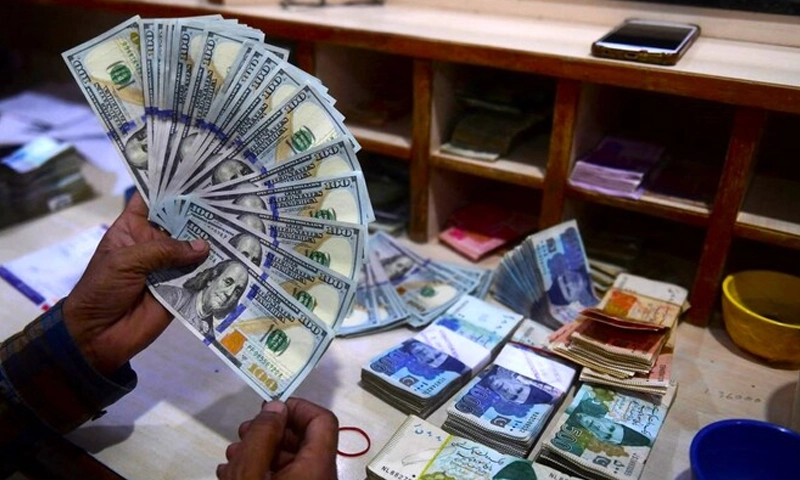- Web
- Feb 05, 2026
Are banks behind recent surge in dollar rate in Pakistan?
-

- Web Desk
- Jul 25, 2025

KARACHI: As the US dollar’s rate saw a jump in Pakistan in recent days, questions have emerged as to whether a new “tussle” has broken out between banks and exchange companies after the State Bank of Pakistan (SBP) introduced a uniform incentive scheme for home remittances.
While no official conflict has been reported, experts said that banks launching their own exchange companies has triggered unease among traditional currency exchange companies.
Following the central bank’s directive, several banks have established their own exchange companies — a move that has drawn objections from traditional exchange companies.
Speaking to Urdu News, Exchange Companies Association of Pakistan Secretary Zafar Paracha said that banks were being offered more facilities than currency exchange companies.
He said, “The continuous rise in the dollar rate over the past few days has changed the landscape. In some cases, exchange companies and banks have colluded to push up the dollar rate.”
According to Paracha, the dollar rate had remained stable for some time due to strict measures by the SBP and law enforcement agencies, but some profiteers were now exploiting the situation to earn illegitimate gains.
He said that authorities have taken serious note of the situation and were cracking down on those involved, which has helped bring down the dollar’s value and stabilise the rupee.
Paracha urged the SBP to extend the same incentives to traditional currency exchange companies as it does to banks, saying that exchange companies had played a vital role in supporting the economy during difficult times.
Meanwhile, a senior official in the exchange division of a private bank in Karachi, speaking on condition of anonymity, rejected the notion that banks and exchange companies were being treated differently by the central bank.
He said clear and straightforward regulations govern the exchange business, and all entities — including banks and exchange companies —operate within these legal frameworks.
He said, “In business, it’s natural for one party to try to attract more business by offering better profits from its own margins — that’s a strategic decision. However, there are regulatory limits that both banks and exchange companies have to follow.”
The SBP had earlier announced the discontinuation and revision of three key incentive schemes related to home remittances from July 1, 2025.
The SBP has terminated the remittances marketing incentive scheme — previously applicable to banks, microfinance institutions, and exchange companies.
The Exchange Companies Incentive Scheme, previously designed exclusively for exchange companies, has also been discontinued.
The third scheme, related to payment of Telegraphic Transfer (TT) charges for home remittances, has been amended and the minimum eligible remittance amount has now been set at $200, and the rebate per transaction is capped at 20 Saudi Riyals.
This scheme will now apply equally to both banks and exchange companies.
Earlier, Exchange Companies Association of Pakistan Chairman Malik Muhammad Bostan along with other members met with a senior military official to discuss the recent surge in the dollar rate.
Speaking to Urdu News, Bostan said, “Dollars are being smuggled into Afghanistan and Iran, while black-market mafias in major cities are diverting customers from licensed exchange companies to secret offices offering higher rates. This is disrupting the legal supply of dollars.”
He also blamed the Federal Board of Revenue’s (FBR) decision to impose tax on cash purchases over Rs200,000 for encouraging dollar hoarding, and demanded a tax exemption for cash purchases up to $2,000.
Experts say that the rise in the dollar’s value is driven by a combination of international political developments, pressure on Pakistan’s foreign exchange reserves, and illegal holding and smuggling — all of which must be addressed.




